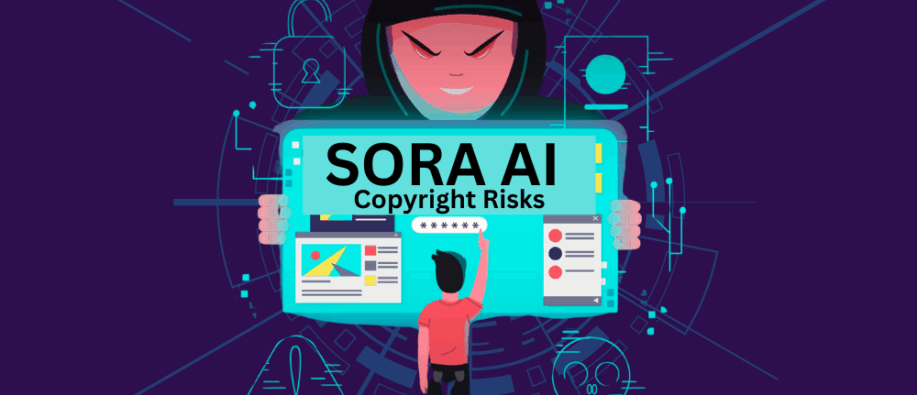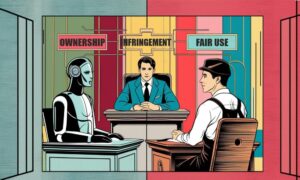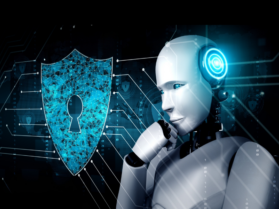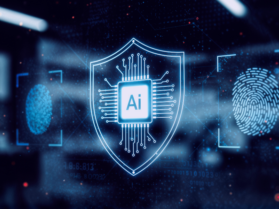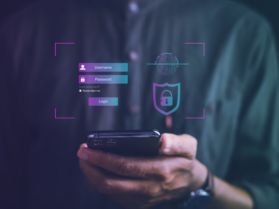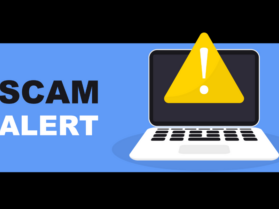AI is changing the way we create content, but it is also raising the serious question of law as well. This raises one of the biggest concerns about copyright risks. With tools like SORA AI generating videos, images, and text in seconds, who really owns the content? Can you become liable if you use media that is produced with AI? Let’s understand the whole concept.
What are SORA AI Copyright Risks?
When AI creates something, it doesn’t start from scratch. It learns from past or existing data. That data often includes copyrighted books, images, videos, and music. Here occurs the major issue: if AI produces something too similar to the original work, you could face legal trouble. Here’s why:
-
- No Clear Ownership: As AI does not ‘own’ its products or creations, courts are still deciding who holds the rights —is it the user? The AI company? Or the original creators?
- Potential Infringement: If AI-generated content looks similar to copyrighted material, the original creator can sue for infringement.
- Uncertain Laws: Copyright laws were not designed to consider AI. This results in ambiguous laws and courtroom conflicts.
Recent Cases Emphasizing the Issue
There have already been numerous cases setting the foundation for AI copyright disputes:
-
- Getty Images vs. Stability AI: Getty sued Stability AI for using its photos to train AI without permission.
- Writers vs. OpenAI: Writers like George R.R. Martin and John Grisham sued OpenAI, claiming ChatGPT was trained on their books illegally.
These cases show that SORA AI copyright risks are real, so companies and individuals need to be careful.
Who Owns AI- Generated Content?
Right now, the law is unclear. Different countries have different rules:
-
- USA: The U.S. Copyright Office states that works created by AI cannot be copyrighted unless a human makes significant modifications to them.
- EU & UK: Laws are stricter, with discussions on whether AI companies should pay for training data.
If you produce a video using SORA AI, you may not ‘own’ it. This would affect businesses, marketers, and content creators who use AI.
How to Avoid Legal Trouble with AI Content
You don’t want a lawsuit just because you used AI. Here is how to stay safe:
Check the Source of Training Data
Some AI tools disclose their data sources. If they use copyrighted material without permission, the output could be risky.
Modify AI Outputs
Since raw AI content may not be protected, adding your own edits, voiceovers, or graphics can help claim ownership.
Use Licensed or Original Content
If you need 100% safe content, stick to licensed stock media or create original work.
Stay Updated on AI Laws
Copyright rules for AI are evolving. Following legal updates can help you avoid unexpected risks.
The Future of AI and Copyright
Governments and courts are still figuring out how to handle AI-generated content. Possible future changes:
-
- Mandatory Licensing: AI companies may have to pay for copyrighted training data.
- Clearer Ownership Rule: Laws may define whether users or AI first own the output.
- Stricter Penalties: Unauthorized use of AI could lead to heavy fines.
For now, SORA AI copyright risks mean users must be cautious. Blindly trusting AI could lead to legal headaches.
Final Thoughts
AI is a powerful tool, but it has legal traps. Copyright threats are genuine, and without taking precautions, you might end up in court or have the content removed. The best strategy? Stay educated, edit AI results, and utilize licensed sources whenever possible.
As laws change, so will the regulations on AI-generated content. Till then, be careful; your imagination shouldn’t get you sued.
To stay informed about security, visit SecureITWorld!
FAQ
Q1. What is the problem with SORA AI?
Answer: SORA AI has faced issues with accuracy and reliability, leading to concerns about its effectiveness in real-world applications.
Q2. What are the dangers of AI-generated content?
Answer: AI-generated content can spread misinformation, create deepfakes, and be used for malicious purposes, making it important to verify and monitor such content.
Q3. Can AI-generated content be copyrighted?
Answer: Yes, AI-generated content can be copyrighted, but the rules may vary by country. Generally, the copyright belongs to the person or entity that created or owns the AI system.
More to Explore:
AI in Cybersecurity: Boon or Burden? Uncover the Impact on Security
Harnessing the Power of AI in Cybersecurity — Predictions and Solutions

